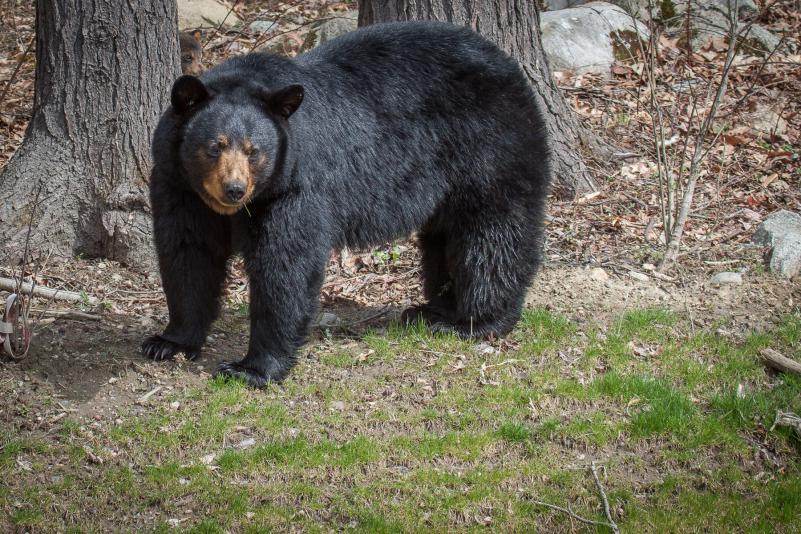Vermont officials for the first time used a new law allowing them to fine people who intentionally feed bears.
The law took effect last year, but Vermont fish and wildlife police only gave warnings. Now, says Col. Dave LeCoeur, a food donation to a neighborhood bear could cost up to $1,000 and a year suspension of a hunting, fishing or trapping license.
“If they’re a sportsman, that’s a bigger penalty for them than the monetary fine,” LeCoeur says.
The first ticket was issued in Montgomery, Vermont, after a bear was killed, in self-defense.
“In the course of our investigation, we eviscerated the bear and inside the bear’s stomach was a lot of bird feed,” he says.
They tracked the feed to a neighbor who LeCoeur says regularly fed bears.
“Bears are very smart and they’re basically a slave to their stomach,” he says. “If they find a high-calorie food source, they will return to it time and time again.”
Leading the bear to expect food from people, which LeCoeur says can be dangerous to humans and bears, especially as their populations have grown dramatically around New England.
Massachusetts has no state law against feeding wildlife, but a couple years ago Northampton made it illegal to feed bears, coyotes, and the like within city limits.
